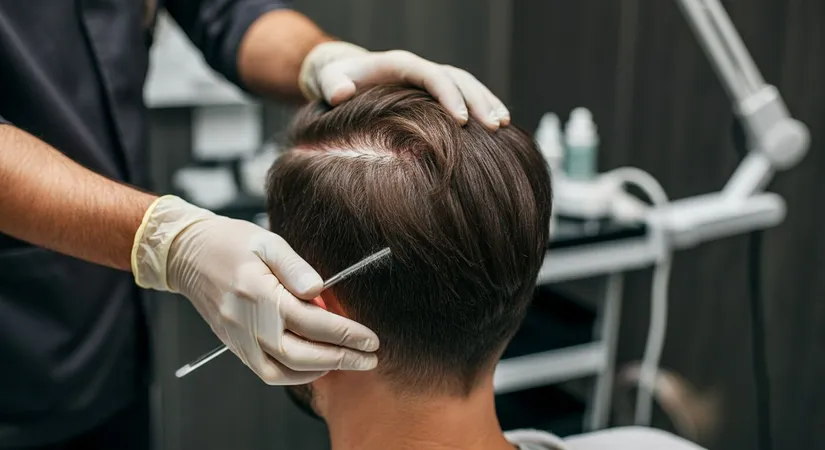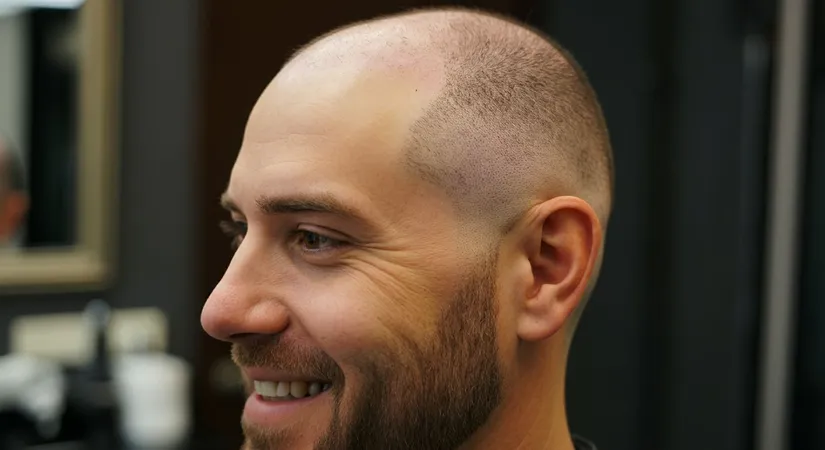Discover Effective Hair Loss Solutions Today
Transform your hair with proven solutions for hair regrowth.
Hair loss is a common concern for many people seeking to maintain or restore their appearance. A variety of solutions are available, from natural remedies to advanced medical treatments. Understanding the causes of hair loss and exploring the latest treatments can help you choose the best option for maintaining healthy hair. This comprehensive guide will take you through effective solutions tailored to your needs.
Understanding the Causes of Hair Loss
Genetic and Hormonal Influences on Hair Loss
Hair loss is often influenced by genetic patterns, with conditions like androgenetic alopecia being common. This hereditary condition affects both men and women, leading to distinct patterns of hair thinning. Hormonal changes, such as those experienced during pregnancy or menopause, can also trigger hair loss. For instance, postpartum hair loss is a temporary condition many women face after childbirth.
Factors Contributing to Hair Loss
- Genetic predisposition, such as a family history of baldness.
- Hormonal fluctuations, including those during menopause.
- Medical conditions like thyroid disorders or alopecia areata.
Understanding these factors is crucial for selecting the right treatment for losing hair. By identifying the underlying cause, individuals can explore effective hair loss solutions tailored to their specific needs.
Steps to Address Hair Loss
- Consult a healthcare professional for a proper diagnosis.
- Explore treatment options like hair restoration services.
- Implement lifestyle changes to reduce stress and improve hair health.
These steps can help manage hair loss effectively, offering a pathway to potential hair regrowth and improved confidence.

Exploring Natural Remedies for Hair Regrowth
Natural Techniques for Hair Health Improvement
Natural remedies offer promising hair loss solutions by focusing on holistic health. Essential oils like rosemary and peppermint can stimulate hair follicles, promoting regrowth. For example, a study found that rosemary oil was as effective as minoxidil in improving hair thickness.
Key Natural Remedies for Hair Regrowth
- Massage with essential oils to enhance blood circulation.
- Incorporate dietary supplements like biotin and zinc.
- Adopt stress-reduction techniques such as yoga and meditation.
These methods not only address hair loss but also contribute to overall well-being, making them effective hair loss treatments for men and women alike.
Steps to Implement Natural Hair Care
- Start with a scalp massage using essential oils twice a week.
- Include nutrient-rich foods and supplements in your diet.
- Practice regular stress management activities.
By integrating these steps into your routine, you can support hair regrowth and maintain a healthy scalp environment, potentially reversing hair loss naturally.

Advanced Hair Restoration Services Explained
Innovative Techniques in Hair Restoration
Advanced hair restoration services like Direct Hair Implantation (DHI) and Follicular Unit Extraction (FUE) are revolutionizing the treatment for losing hair. These methods are minimally invasive, offering high success rates and natural-looking results. For instance, DHI involves using a specialized pen-like tool to implant hair follicles directly into the scalp, ensuring precise placement and density. This technique reduces trauma to the scalp, leading to quicker recovery times compared to traditional methods.
Benefits of Advanced Hair Restoration Techniques
- Minimally invasive procedures with reduced scarring.
- High precision in follicle placement for natural results.
- Faster recovery times, allowing patients to resume daily activities sooner.
These benefits make advanced hair restoration techniques a preferred choice for individuals seeking effective hair loss solutions.
Steps in the Hair Restoration Process
- Initial consultation to assess hair loss and determine suitability.
- Extraction of healthy hair follicles from donor areas.
- Implantation of follicles into thinning or bald areas.
Each step is carefully executed to ensure optimal results, making these services a reliable option for those looking to restore their hair.

Choosing the Best Treatment for Your Hair Loss
Personalized Approaches to Hair Loss Treatment
When selecting a treatment for losing hair, personalization is key. Each individual's hair loss pattern, lifestyle, and preferences play a crucial role in determining the most suitable approach. For example, someone with early-stage thinning might benefit from topical treatments, while advanced hair loss could require surgical interventions.
Factors Influencing Treatment Choice
- Extent of hair loss and its progression over time.
- Personal comfort with surgical versus non-surgical options.
- Commitment to ongoing maintenance and follow-up care.
These factors help tailor hair loss solutions to meet individual needs, ensuring effective outcomes.
Steps to Determine the Best Treatment
- Consult with a hair loss specialist for a comprehensive evaluation.
- Discuss potential treatments, including hair restoration services.
- Consider lifestyle and personal preferences in decision-making.
Following these steps can lead to a well-informed choice, enhancing the likelihood of successful hair regrowth and satisfaction with the treatment process.
Frequently Asked Questions
Understanding Hair Loss Reversal Possibilities
Reversing hair loss is a complex process that depends on various factors, including the underlying cause and the individual's response to treatment. While some treatments can effectively promote hair regrowth, results can vary significantly. For instance, medications like minoxidil and finasteride have shown success in slowing hair loss and stimulating regrowth in some individuals. However, these treatments require consistent use and may not work for everyone.
Common Questions About Hair Loss Treatments
- What is the best treatment for losing hair? The best treatment varies based on individual needs and the cause of hair loss.
- How does hair loss treatment work? Treatments often aim to stimulate hair follicles and slow hair loss progression.
- Can hair loss be reversed? Some treatments can reverse hair loss, but effectiveness varies by individual.
Understanding these aspects can help set realistic expectations and guide individuals in choosing the right hair loss solutions for their situation.
Steps to Explore Hair Loss Solutions
- Identify the cause of hair loss through medical consultation.
- Research various treatment options, including natural and medical solutions.
- Evaluate the potential effectiveness and side effects of each treatment.
By following these steps, individuals can make informed decisions about their hair restoration journey, potentially finding effective solutions tailored to their needs.
Innovative Techniques in Hair Restoration
Steps to Effective Hair Loss Management and Regrowth
Frequently Asked Questions
What are the main causes of hair loss?
How effective are natural remedies for hair regrowth?
What are the benefits of advanced hair restoration services?
How do I choose the best treatment for my hair loss?
Can hair loss be completely reversed?
Discover the path to 'Healthy Beauty' with estethica's expert team. Call now for your free consultation and take the first step towards a more confident you!
📞 Call for Your Free Consultation